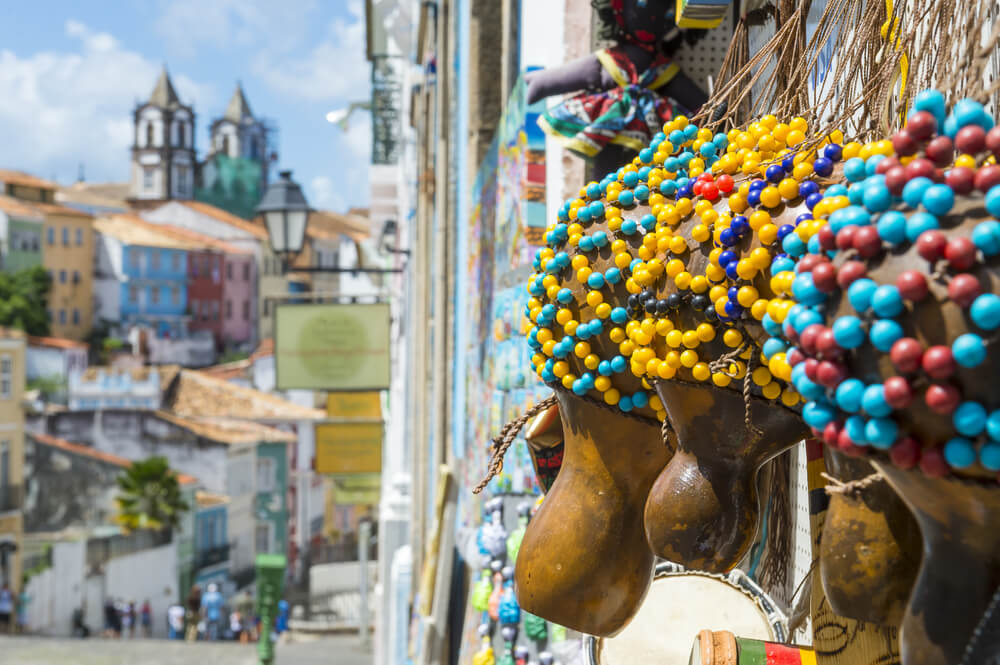Chase foreign transaction fees: Complete guide
Everything you need to know about Chase foreign transaction fees.

Historically, Brazil has received more immigrants than almost any other country in the world - ranked high on the list with the U.S., Argentina and Canada.
More recently, the international spotlight has been on Brazil as host of both the Olympics and Football World Cup. Millions of foreign visitors flowed into Brazil to enjoy the spectacle and many of them left, dreaming of a move to the land of Samba.
If you’re one of them, you’ll be delighted to know that Brazil has been ranked in some surveys as one of the best countries for expats to live. But to enjoy it you’ll need cash - and that means opening a local bank account.
Read this guide to get you started.
If you want to open an account in Brazil, you’ll need a residence permit valid for at least 12 months. Once you have this, you’ll need to visit your bank with the following documents:
There are plenty of online stories of travellers who struggle to open an account in Brazil, often because local staff are unfamiliar with dealing with expats. If this is a problem, then opening an account with an international bank based in Brazil may be a better option. There will likely be fewer bank branches at your disposal, but you can access ATMs and online banking just as easily as with a local bank. There are only a handful of international banks that operate in Brazil.
Some banks will allow you to start the process to open a bank account from abroad, but you’ll still have to present your documents in person. This means you’ll have to call into your local branch upon arrival to finalise the account opening. Once you’ve chosen the right bank and account type for you, check the specific policy they use regarding remote opening of accounts.
In theory, non-residents can open a bank account in Brazil, but, in practise,none of the major banks are keen on this. Visitors to Brazil generally cannot open a bank account without obtaining a resident visa (permanent or temporary) which has a duration of over 12 months. This means it’s not an option for the irregular visitor or those looking only to fund a short trip using a local account.
There are only a few international banks operating in Brazil. If you don’t want to bank with an international banks, then stick with one of the national banks such as those listed below. Although there are many regional operators, these will often offer fewer services, and the branch network may prove limiting.
Bank websites in Brazil generally don’t offer information in English - so if your Portuguese is not so good, you might need a friend to help you.
Large national banks in Brazil to start your search:
| --- | --- |
| Caixa | Caixa is a government-owned bank which also operates the national lottery. They specialise in savings products (although they also offer regular checking accounts) and have offices overseas in the USA, Japan and Venezuela. They have over 78 million customers, making them one of the largest banks in Brazil - and an extensive branch and ATM network. Internet and telephone banking is also offered. |
| Banco Bradesco | Since acquiring HSBC’s business in July 2016, Bradesco has an even larger slice of the Brazilian banking market. They offer a wide range of account products, including specific options for retirees, students and children. You can open some accounts using foreign currency, and operate an account entirely online, if you’d prefer. Internet and phone banking is also an option with a standard account. |
| Itaú | Itaú is a large Brazilian bank, which offers current accounts, credit and debit cards. Their site clearly shows the fees and charges associated with the accounts available - so check out the small print before you choose. You can use an app to carry out your day-to-day banking. If you prefer to bank via the webpage rather than the app, make sure you’re happy with the functionality of the site. |
| Banco do Brasil | Banco do Brasil is majority government-owned, but it’s not the Brazilian national bank. In fact, it’s one of the world’s oldest banks and the oldest in continuous operation in Brazil. Today, it’s one of the largest (and most profitable) financial institutions in the country and offers current accounts, savings accounts, and ‘salary’ accounts for receiving your regular income. |
As a foreigner, opening a bank account in Brazil can be a challenge. Be patient, and take a translator if you think you’ll run into language problems.
Although there’s no reason why a foreign national can’t open an account, each bank has its own policy, and local branches might not be familiar with the processes themselves. The exact rules will vary from bank to bank, so if you can’t get the service you require at one provider, try the others. If you’re depositing a large sum of cash, you may well find that the banks are more inclined to help.
Whichever bank you choose, it's important to read the terms and conditions carefully. Take a friend to translate if your Portuguese isn't great, and make sure you get all the details you need about banking fees and charges.
Remember - charges may be applied differently in your home country. You might find account handling charges to keep your account open or for the use of a credit or debit card. It's also common to be charged for withdrawing cash from an ATM operated by a different bank.
If you need to move money between accounts in different currencies, this will be subject to fees and charges, as well. In addition to charging for processing the transaction, banks often make their profit through using an exchange rate that is not a great deal for you. Even if they claim ‘zero commission’, or ‘fee-free transfers’, you can bet they aren't working for free. Their cut is simply hidden in the exchange rate.
If you want international money transfers with low, transparent fees, use Wise. With Wise you can move money between accounts using the real exchange rate - no mark up, and no hidden fees.
*Please see terms of use and product availability for your region or visit Wise fees and pricing for the most up to date pricing and fee information.
This publication is provided for general information purposes and does not constitute legal, tax or other professional advice from Wise Payments Limited or its subsidiaries and its affiliates, and it is not intended as a substitute for obtaining advice from a financial advisor or any other professional.
We make no representations, warranties or guarantees, whether expressed or implied, that the content in the publication is accurate, complete or up to date.

Everything you need to know about Chase foreign transaction fees.

Everything you need to know about PNC credit and debit card foreign transaction fees.

Wondering how to open a foreign currency account in the US? Struggling to find information? Read on to find out what you need.

Considering closing your foreign bank account? Discover the tax implications, benefits, and steps involved in making this decision. Learn more here.

Learn how to close your ADCB account from abroad with this comprehensive guide. Discover the steps, required documents, and tips for a smooth process.

Learn how to close your UAE bank account from abroad with this comprehensive guide. Discover the steps, required documents, and tips for a smooth process.